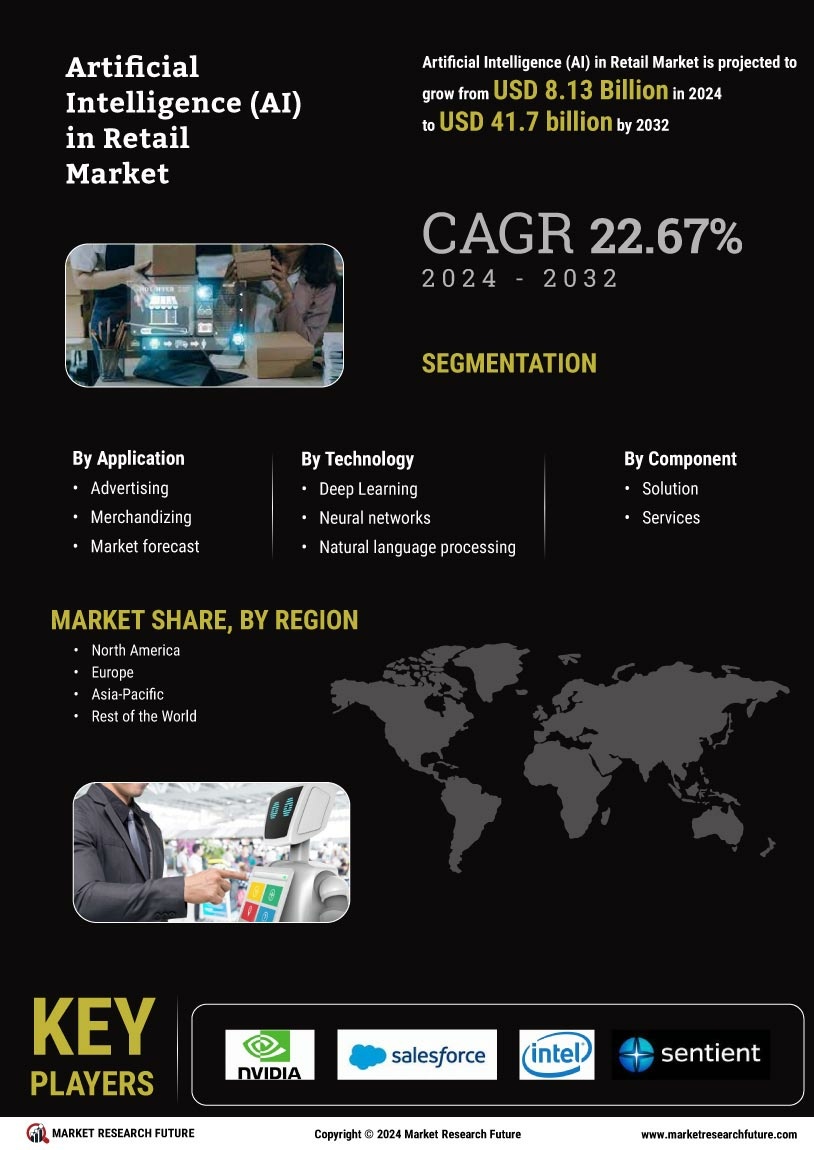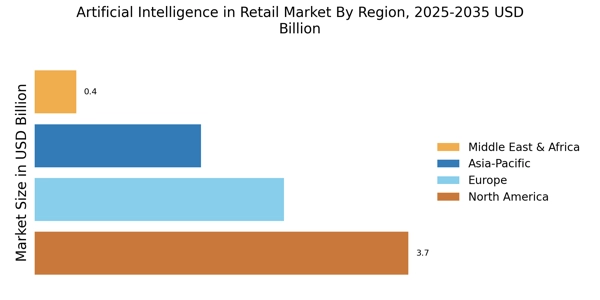The Artificial Intelligence in Retail Market is currently experiencing a transformative phase, characterized by the integration of advanced technologies that enhance customer experiences and streamline operations. Retailers are increasingly adopting AI-driven solutions to analyze consumer behavior, optimize inventory management, and personalize marketing strategies.
This shift appears to be driven by the need for businesses to remain competitive in a rapidly evolving landscape, where consumer expectations are continuously rising. As a result, AI technologies are becoming indispensable tools for retailers aiming to improve efficiency and foster customer loyalty. Moreover, the market seems to be influenced by the growing emphasis on data analytics and machine learning capabilities. Retailers are leveraging these technologies to gain insights into purchasing patterns and preferences, which may lead to more informed decision-making. Emerging technologies such as generative AI in retail are enhancing content creation, personalized marketing, and conversational commerce, while AI for operational efficiency is driving automation across retail workflows. The potential for AI to automate routine tasks and enhance operational efficiency is also noteworthy, as it allows businesses to allocate resources more effectively. Overall, the Artificial Intelligence in Retail Market is poised for continued growth, driven by innovation and the increasing demand for personalized shopping experiences. Key AI use cases in retail include customer service automation, demand forecasting, fraud detection, and inventory optimization, highlighting real-world AI in retail examples.
Among the trends in the artificial intelligence market, retailers are increasingly leveraging machine learning, natural language processing, and computer vision technologies to deliver seamless shopping experiences and data‑driven decision making, marking a shift toward AI‑enabled retail transformation. The rapid adoption of artificial intelligence in retail is transforming how businesses manage operations, engage customers, and optimize supply chains across the AI in the retail industry. The convergence of artificial intelligence and retail is enabling data-driven decision-making, automation, and real-time customer insights across global retail ecosystems. The future of AI in retail will be shaped by advanced personalization engines, generative AI capabilities, and autonomous decision-making systems that enhance scalability and profitability.
Personalization of Customer Experience
Retailers are increasingly utilizing AI to tailor shopping experiences to individual preferences. By analyzing customer data, businesses can offer personalized recommendations, targeted promotions, and customized content, thereby enhancing customer satisfaction and loyalty.
Supply Chain Optimization
AI technologies are being employed to streamline supply chain processes. Through predictive analytics and real-time data processing, retailers can improve inventory management, reduce waste, and ensure timely delivery of products, ultimately leading to cost savings. Retailers are increasingly adopting AI retail solutions and AI solutions for retail to improve demand planning, pricing strategies, and customer engagement. Advanced retail AI analytics and retail AI optimization tools are enabling retailers to reduce costs, improve forecasting accuracy, and maximize operational performance.
Enhanced Customer Service
The integration of AI-powered chatbots and virtual assistants is transforming customer service in retail. These tools provide instant support, answer queries, and assist with transactions, thereby improving overall customer engagement and operational efficiency. The deployment of AI in retail stores, such as smart checkout systems and AI-powered customer assistants, is redefining in-store shopping experiences.

















